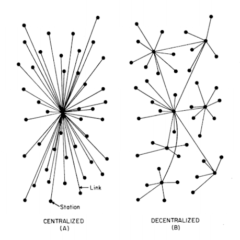Leo Strauss, 1989
Strauss takes up the Socratic method to advocate for an invigoration of political philosophy based on his critique of political theory. He argues that political theory adopts its moniker as it interprets politics as contestation between divergent groups; rather than conducting reflexive analysis of the basis of the political itself. Part of his contention is in concordance with mid-century continental philosophers. Strauss does remark that the basis for the “meeting of the East and West” is in the Heideggerian study of being; and he embraces Heidegger’s radical and existentialist approach to politics for exposing the flaws and contingent superficiality of political rationalism. However, as the introduction notes, he does not go so far as to offer a complete, nihilistic rejection, and turns to both Medieval thinkers like Spinoza and back to the Greeks to reconstruct the political philosophy discipline.
